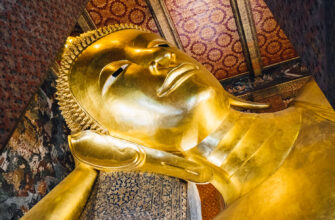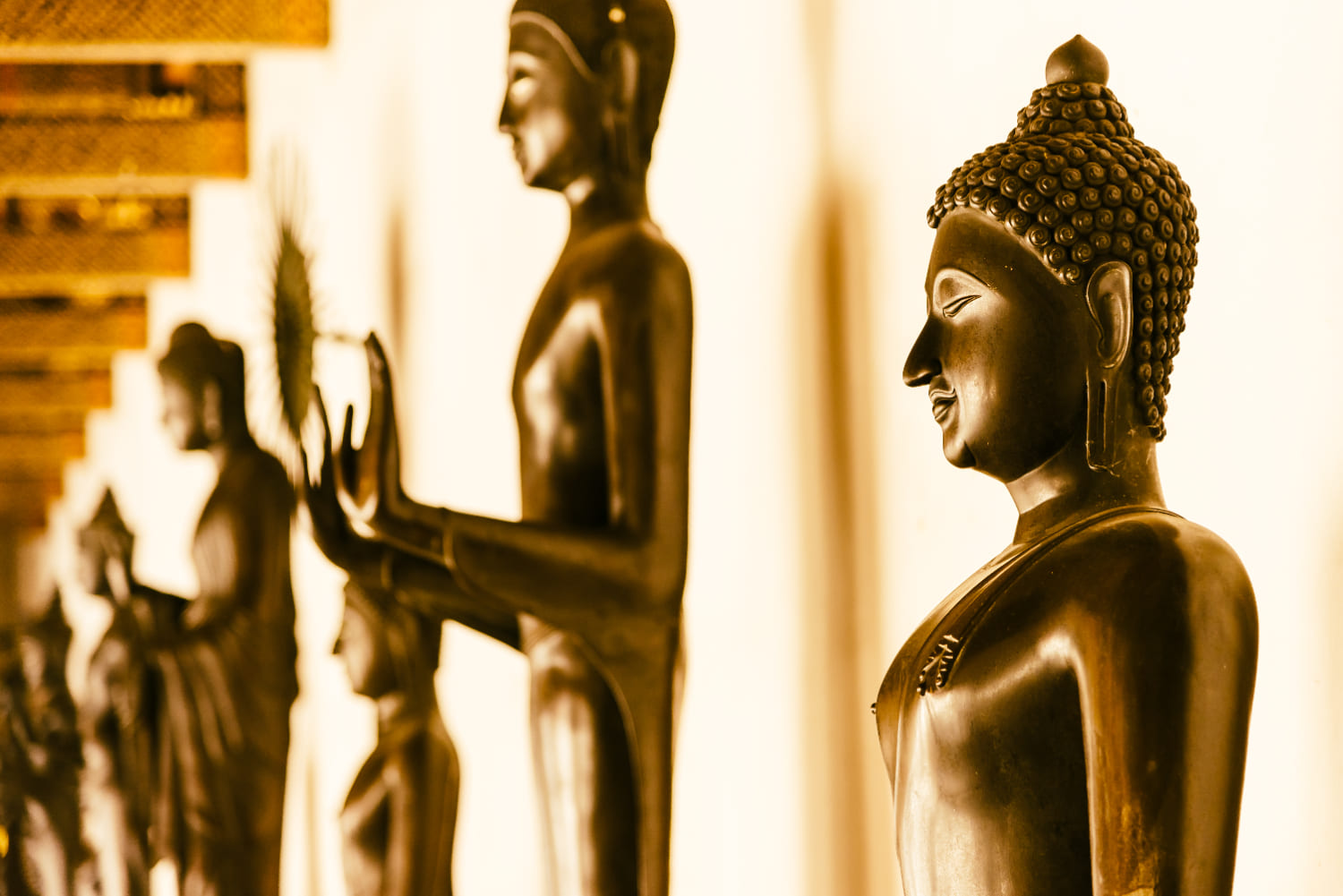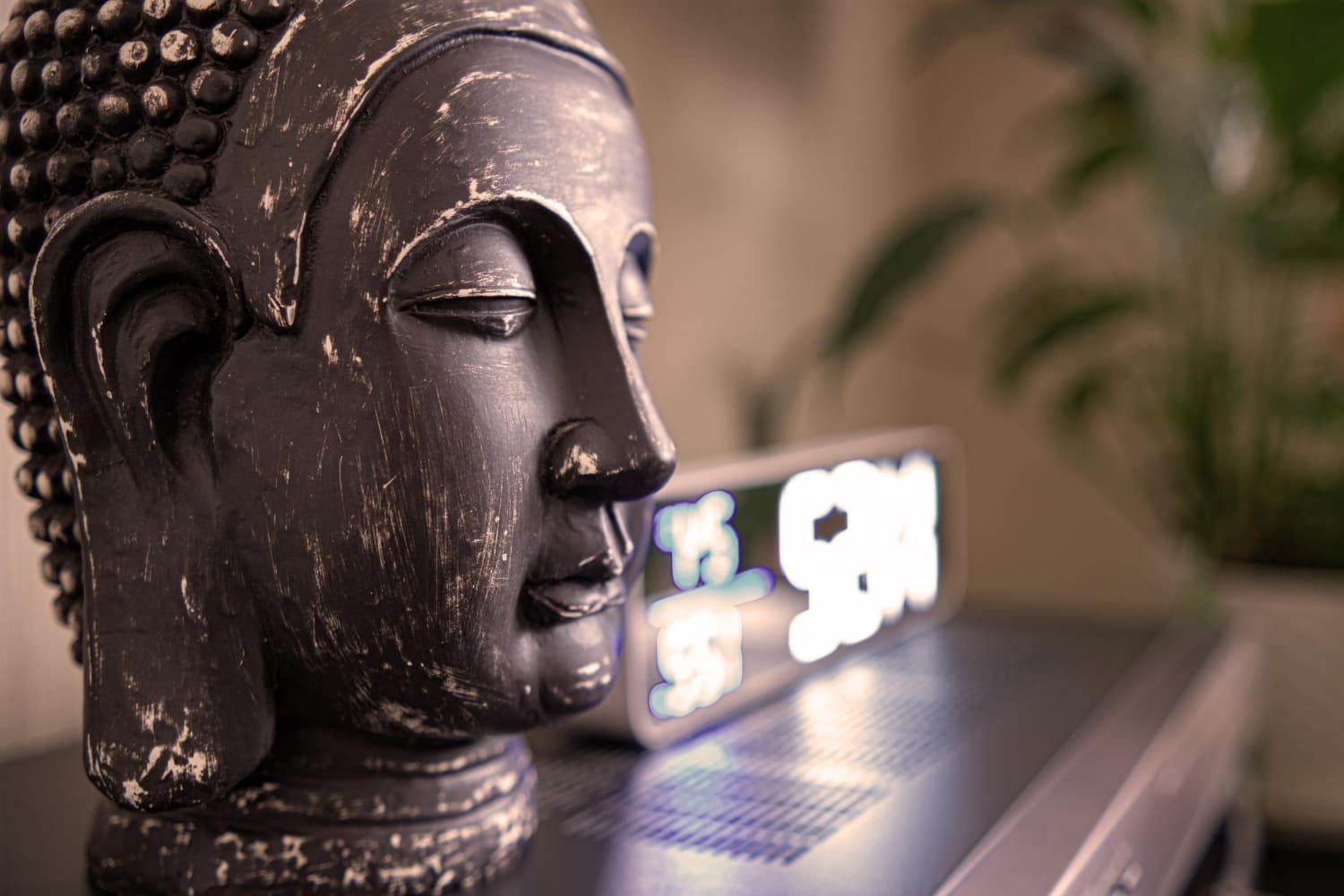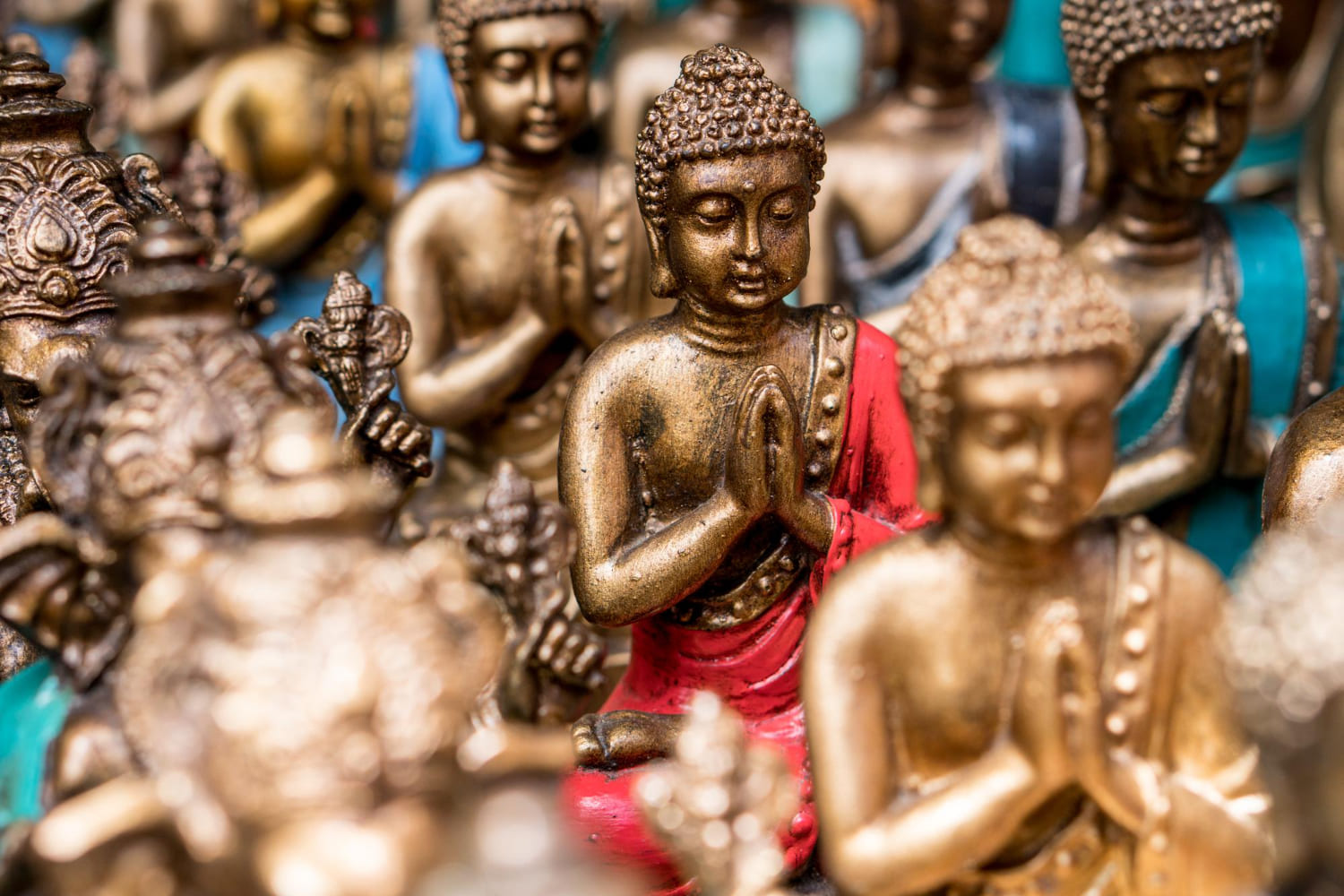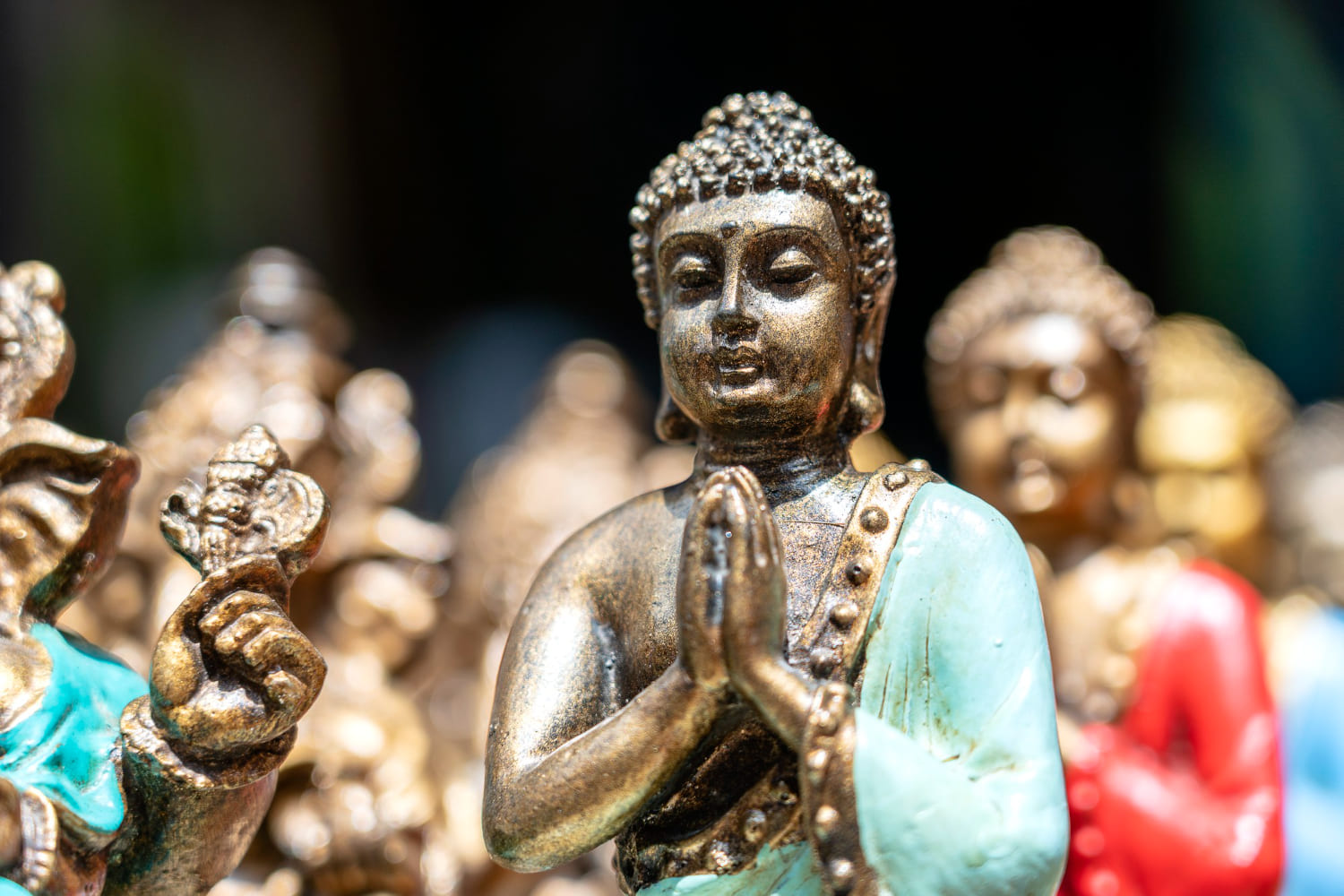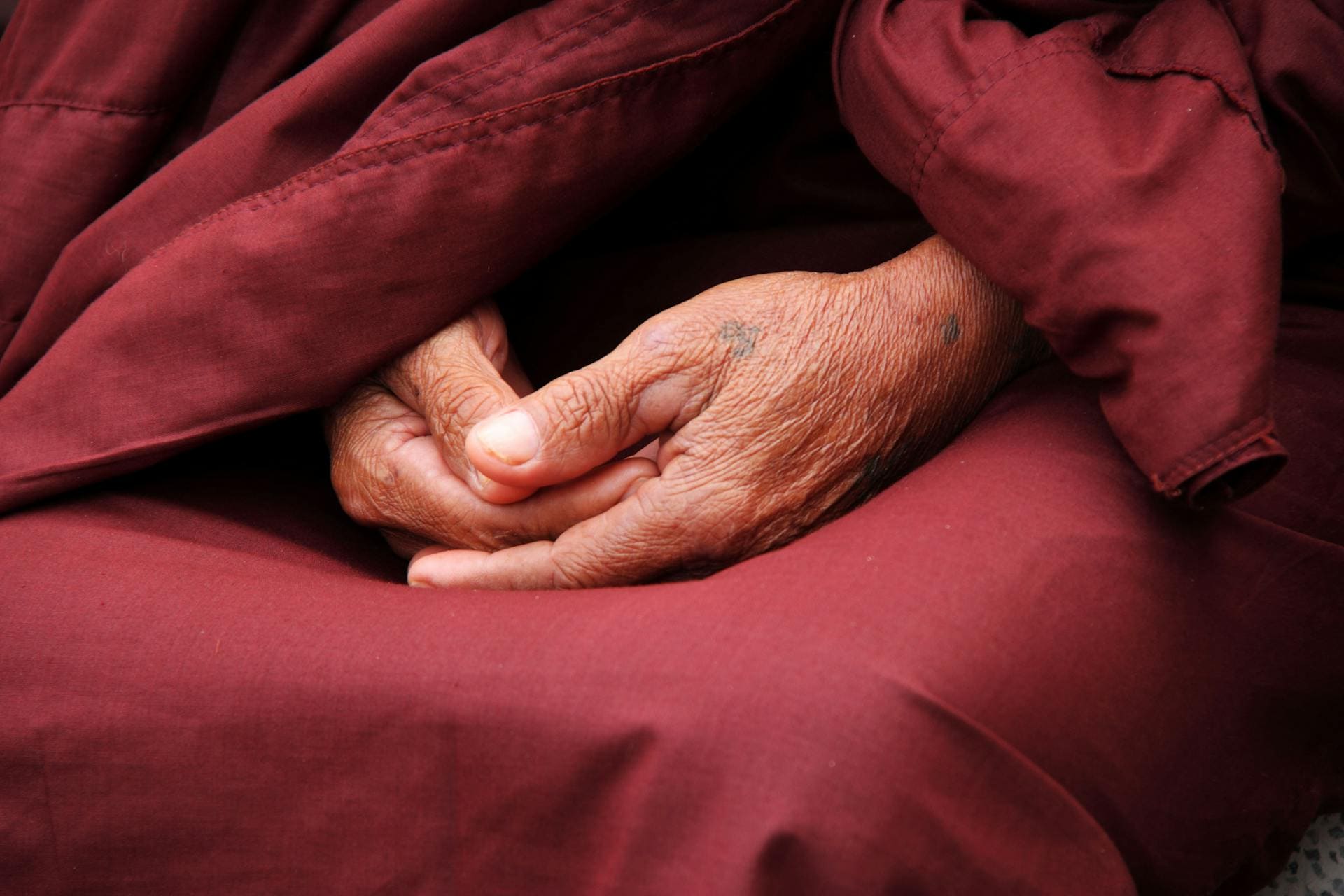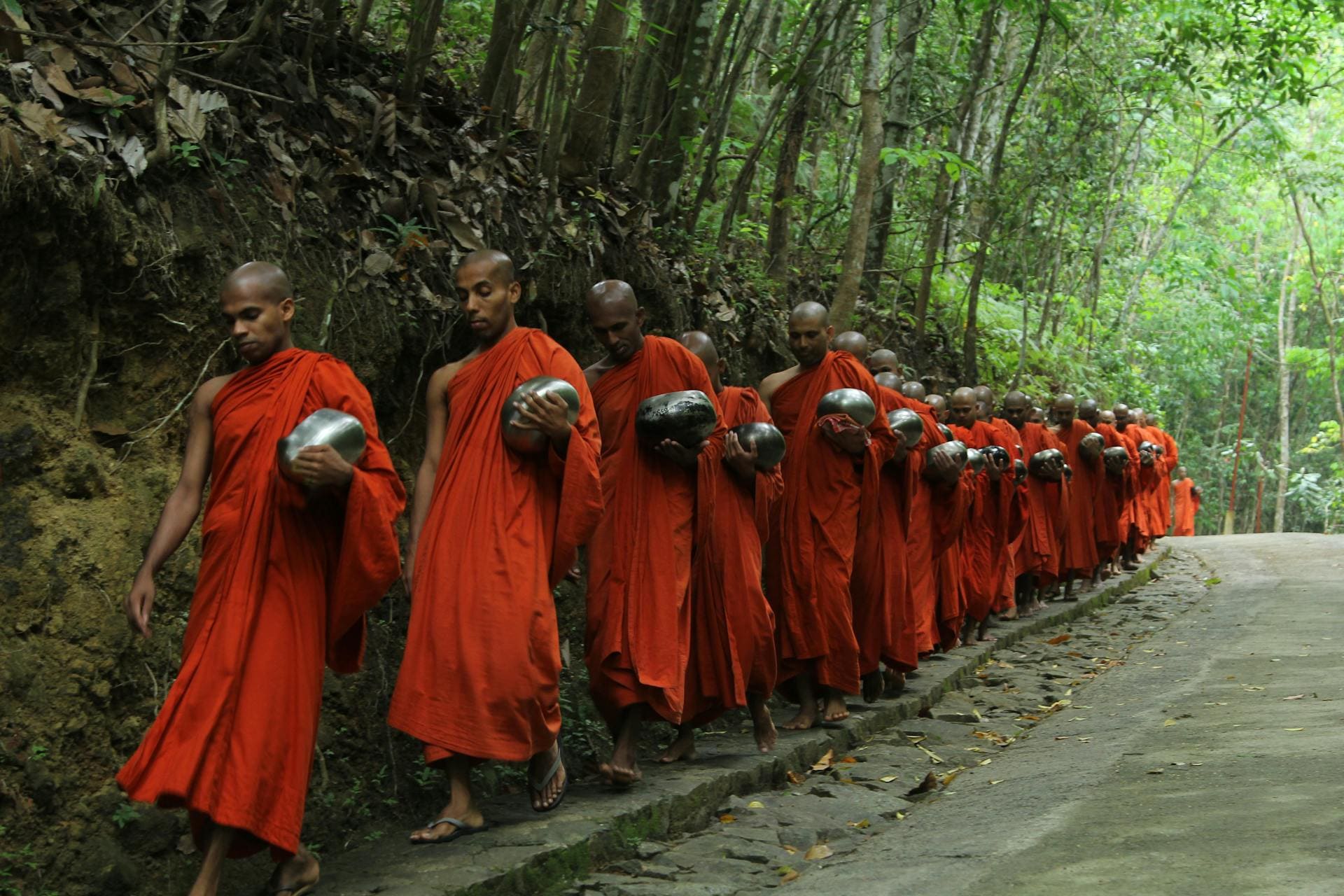No, Buddhism is often referred to as a nontheistic religion, meaning that the followers of this faith do not necessarily believe in a divine creator or God but that’s not necessarily the whole picture.
Yes, it’s true that Buddhism began when the historical figure Buddha started out life as a “normal person”, gaining awareness and following the path of enlightenment and awakening just by training his own mind and grappling with the world around him.
In this way, Buddhism was not established by divine intervention or created through some sort of special knowledge or communion with an external force or a divine being.
That said, Buddhists do in fact believe in divine creatures, divine people, and divine entities – even if that doesn’t necessarily jive with Christian (or other faiths) belief in a singular creator called God.
Buddhism | God Beliefs
As we highlighted a moment ago, Buddhists do not necessarily believe in a singular entity that controls their lives, shapes the universe around them, or intervenes in the day-to-day life of individuals, either.
All that aside, though, many Buddhist traditions are deeply rooted in the spiritual realm and the divine.
Buddhists believe in deities and supernatural entities for sure, with even the earliest Buddhist texts referring to the gods of India, metaphysical creatures, and a whole host of divine beings that may not have necessarily intervened in Buddhas path to enlightenment – but certainly watched with more than curiosity to see how Buddha would develop.
One major difference, however, between these kinds of gods and deities and those in other faiths is that the Buddhists believe that even these divine and celestial beings are going through the exact same cycle of rebirth that every other living thing goes through, too.
On top of that, most believers of the Buddhist faith operate under the understanding that while these divine and celestial beings have great power and great knowledge, they have not themselves been able to achieve the level of enlightenment and attainment that the Buddha has.
In this way, even the gods and divine creatures of Buddhism are still somewhat subservient – though not directly, of course – to what Buddha was able to accomplish on his own.
Buddhism Isn’t a Single Religion
It is also important to understand that Buddhism (much like Hinduism) is not necessarily a single religion, even if it is often sort of described that way by practitioners as well as those outside the faith.
It would be a lot more accurate to describe Buddhism as a family of different beliefs, all interconnected and interrelated the way the core thread of spiritual traditions, common beliefs, and characteristics link them together.
While Siddhartha Gautama (later known as Buddha, the Awakened One) did not believe in God, certainly not the way that Christians, Jews, and Muslims might.
That doesn’t mean that modern Buddhists do not have some sort of relationship with a higher power or a higher creator.
It’s true that the “core” tradition of Buddhism does not affirm God as a creator entity, but there’s a lot of freedom and flexibility of personal belief in Buddhism that allows for that thought to exist in the same space as the rest of the Buddhist teachings.
Better Understanding the Devine in Buddhism
At the end of the day, it’s important to remember that while Buddhism does not require faith or belief in the concept of a singular God (or even a number of gods) it is not necessarily antagonistic to the idea, either.
This is, after all, a nontheistic faith. That means that the existence of a God would be irrelevant – something that is neither confirmed and affirmed nor denied out of hand entirely.
Individual Buddhist practitioners can make their own choices while recognizing that their belief in a God (or not) has zero impact on their path to enlightenment.
Closing Thoughts
While the spiritual contexts of Buddhism in particular make it somewhat challenging to reconcile Western faiths and their belief in God (or gods) with this family of religions, when you begin to understand what a non-theist religion is all about.
How gods can exist but not play a relevant role in the faith at the same time – things become a little clearer.
Buddhists are free to believe in gods or a God while at the same time understanding that their path to awakening and enlightenment is not and will not be influenced by those divine entities.
